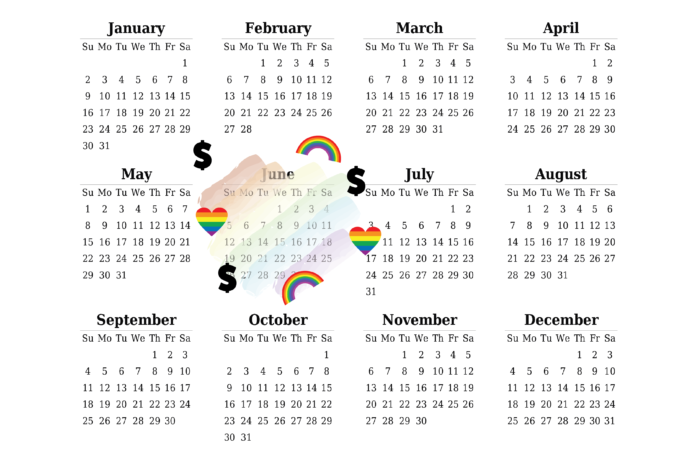The industry’s forced depiction of diversity proves to be more damaging for marginalized communities than a lack of it
By SUN YIE — arts@theaggie.org
Retconning, also known as retroactive continuity, is a term used to describe creators who retroactively add details that alter fundamental elements of their work; for instance, they might revive a dead character, add details that solve gaping plot holes or address other illogical discontinuities. However, some creators, like J.K. Rowling, might retcon their work to shoehorn in disingenuous representations of diversity to pander to their audience, causing more damage to marginalized communities through their forced attempts of representation than the harm caused by the lack of it.
In 2007, Rowling sent fans reeling when she declared in an interview that the beloved, wise wizard Dumbledore of her “Harry Potter” series was gay. While a few fans interpreted this information to mean that Rowling would include more diversity in her work going forward, most were outraged by her performative activism and blatant queerbaiting. Though Rowling justified the dubiousness of this choice by claiming that her series was told through Harry Potter’s lens, thus making Dumbledore’s sexuality entirely possible, many fans retorted that there could have been queer relationships among students as well, especially during the Yule Ball, the wizard-world version of prom. This drove fans to claim that Rowling’s retconning had given her the space to act as an ally for marginalized communities without losing her profits, since none of this so-called allyship has been legitimized in her actual works — at least, not until her most recent work, “Fantastic Beasts: The Secrets of Dumbledore.”
Rowling’s latest film begins with a younger Dumbledore locked in a battle with a younger Grindelwald, the wizarding crime-lord who wants to rid the world of Muggles, or non-wizards. While the two exchange magical battle spells, Dumbledore declares, “I was in love with you,” and then the screen cuts to Newt Scamander, the protagonist of the “Fantastic Beasts” series. Dumbledore’s grand proclamation of love lasts a total of five seconds on-screen, an accurate exhibit of Rowling and the Warner Brothers’ idea of adequate diversity and queer representation.
Even worse than forcing these fragments of representation, though, is the fact that the Warner Brothers have admitted to erasing more scenes that would have supported Dumbledore and Grindelwald’s romantic relationship. They claimed to have done so to appease their Chinese audience, demonstrating their desire for profit at the cost of queer erasure. Considering Rowling’s ties to the Warner Brothers, this erasure makes her claims of allyship even more disingenuous and performative, demonstrating the growing need for the media industry to spotlight creators who represent marginalized communities in a healthy way.
This erasure of queer representation by Rowling and the Warners Brothers has been mirrored by other streaming companies, like Netflix and Hulu, and bigger film franchises, like Star Wars and Marvel. Take, for instance, the unnamed Resistance fighter pilot couple who shared a kiss in “The Rise of Skywalker” that was so brief, it might have been missed by a blink. From the same franchise, Finn, one of the trilogy’s protagonists played by John Boyega, was erased from movie posters that were advertised to Chinese audiences and subsequently marginalized throughout the rest of the trilogy. Likewise, in his own series on Disney Plus, Loki had been confirmed to be bisexual, but the possibility of exploring his fluid sexuality was soon after abandoned by the showrunner.
By providing their audience with these breadcrumbs of acknowledgment to these marginalized communities, the entertainment industry is able to continue garnering praise while maintaining these hollow acts of inclusivity. Though there has been an increase in well-written, constructive portrayals of queer and other marginalized communities, such as “Steven Universe,” “Sex Education” and “Heartstopper,” these shows are few and far between. The truth remains that the entertainment industry still has much more room to grow in terms of adopting real methods of change in the name of diversity.
Written by: Sun Yie — arts@theaggie.org




